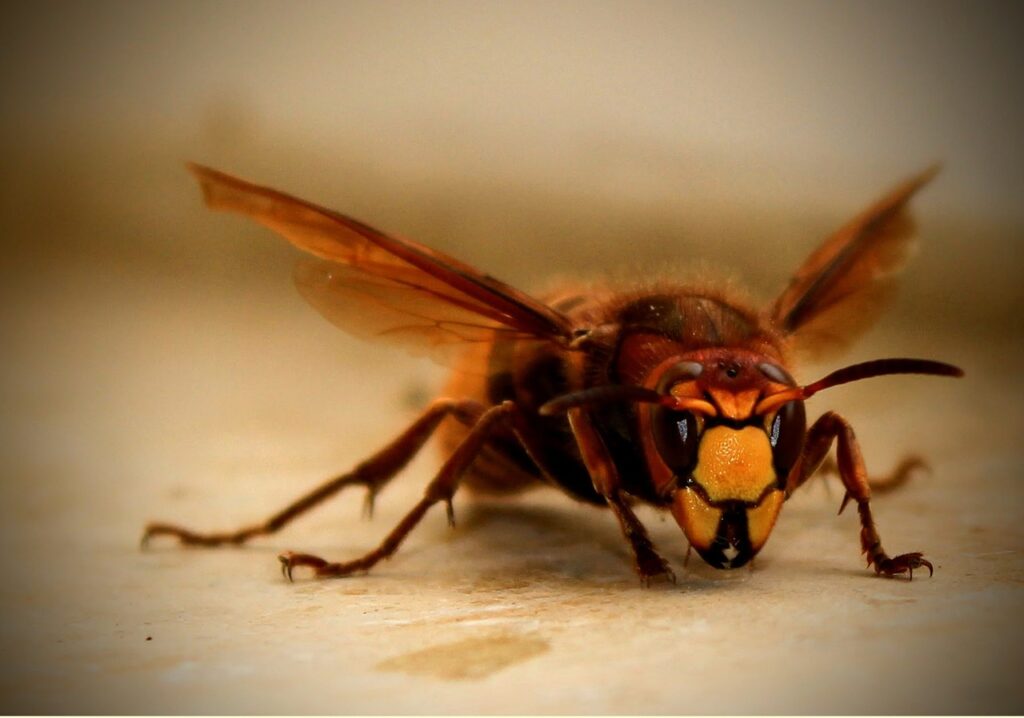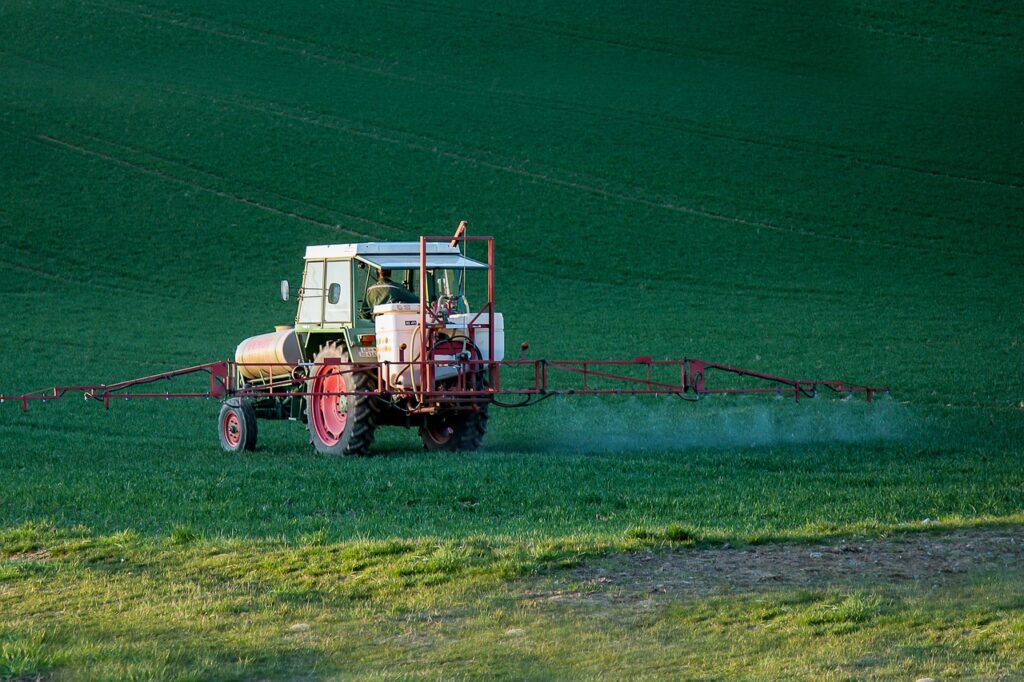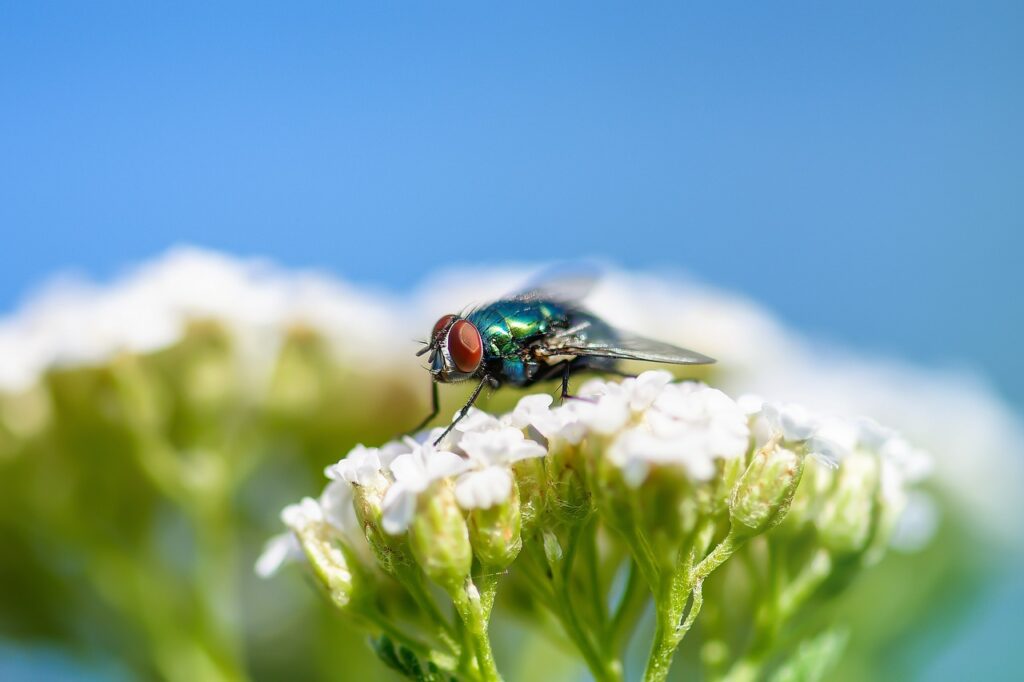Are pesky flies invading your home? No worries, we’ve got you covered! In this article, we’ll share some handy tips and tricks to help you tackle a fly infestation head-on. From simple preventive measures to effective home remedies, we’ll arm you with the knowledge and tools you need to regain control over your living space. Say goodbye to those annoying buzzing pests and hello to a fly-free environment once again!
Identifying a Fly Infestation
When it comes to identifying a fly infestation, there are several common signs to look out for. First, you may start noticing an increased number of flies buzzing around your home or property. This is a clear indication that there is a breeding ground nearby. Additionally, you might see flies congregating near windows, doors, or trash cans.
Another sign of a fly infestation is the presence of fly droppings. These tiny black specks can often be found on surfaces, especially near areas where flies tend to gather. Furthermore, a distinctive musty odor, caused by fly secretions, can be a telltale sign of an infestation.
Different types of flies have varying characteristics, which might help you identify the specific species causing the infestation. House flies are commonly encountered indoors and are often attracted to garbage and decaying organic matter. Fruit flies, on the other hand, are smaller and predominantly found near ripe fruits and vegetables.
Determining the severity of a fly infestation is crucial for implementing the appropriate control measures. If you’re only seeing a few flies sporadically, it may be just a minor issue. However, if you observe large numbers of flies consistently, especially in various areas of your home or property, it indicates a more severe infestation that requires immediate attention.
Preventing Fly Infestations
Preventing fly infestations is crucial to maintain a clean and healthy living environment. By following a few simple practices, you can significantly reduce the risk of attracting flies to your home.
Maintaining cleanliness and proper hygiene practices is the first line of defense against fly infestations. Regularly cleaning and sanitizing surfaces, especially in the kitchen and dining areas, can eradicate any potential food sources for flies. Keeping trash cans and garbage bins tightly sealed can also prevent flies from being attracted to the odor of decaying organic matter.
Be sure to dispose of waste properly, both indoors and outdoors. Bagging and tying off garbage bags securely before placing them in outdoor trash receptacles can minimize the chances of attracting flies. Additionally, it’s important to clean up any spilled food or drinks promptly, as these can be major attractions for flies.
Screening windows and doors is another effective way to keep flies out of your living spaces. By installing screens, you create a physical barrier that prevents flies from entering your home while still allowing fresh air in. Also, be diligent about repairing any rips or tears in the screens to ensure they remain effective.
Using fly traps and repellents can be helpful in controlling fly populations. There are various types of traps available, such as sticky traps or baited traps, which can capture and eliminate flies. Additionally, using natural fly repellents made from essential oils, such as lavender or eucalyptus, can deter flies from entering your home.
Sealing cracks and openings in your home can prevent flies from finding entry points. Inspect your property for any gaps or openings, paying close attention to areas around windows, doors, vents, and utility lines. By sealing these potential entryways, you can significantly reduce the risk of a fly infestation.

Natural Remedies to Control Flies
If you prefer to use natural methods for fly control, there are several remedies you can try. Essential oils and herbs have been known to repel flies effectively. Some popular options include lavender oil, peppermint oil, and basil. By using these oils in diffusers or homemade sprays, you can repel flies and keep them away from your living spaces.
Certain plants also possess natural fly-repellent properties. Planting herbs like basil, mint, and rosemary around your home or garden can help deter flies. Additionally, marigolds and lavender are known to repel flies due to their strong scents. Consider incorporating these plants into your outdoor spaces to naturally discourage fly infestations.
Homemade fly traps and baits can also be effective in controlling fly populations. One common DIY trap involves creating a mixture of apple cider vinegar, sugar, and dish soap in a shallow dish. The vinegar attracts flies, while the soap reduces surface tension, causing them to drown. Placing these traps strategically around your home can help reduce fly numbers.
Chemical Solutions for Fly Control
In some cases, chemical solutions may be necessary to eliminate persistent fly infestations. Insecticides specifically formulated for fly control are available in various forms, including sprays, aerosols, and baits. When using insecticides, it’s important to follow the instructions carefully and keep them out of reach of children and pets.
For more targeted fly control, there are products available that specifically target flies without harming other insects or animals. These products often come in the form of baits or traps that specifically attract flies using pheromones or food-based attractants. By using targeted fly control products, you can effectively reduce fly populations without adversely impacting the environment.
If the infestation persists despite your best efforts, it may be necessary to seek professional pest control services. Pest control professionals have the knowledge and expertise to identify the source of the infestation and implement appropriate control measures. They can also provide recommendations for preventing future fly infestations.

Keeping Flies Away from Indoor Spaces
To keep flies away from your indoor spaces, it’s important to eliminate their food sources and maintain cleanliness. Start by regularly cleaning your kitchen and dining areas, especially after preparing or eating meals. Wipe down countertops, sweep or vacuum floors, and empty trash bins to remove any remnants that could attract flies.
Using fly screens on windows is an effective way to prevent flies from entering your home while still allowing fresh air to circulate. These screens act as a barrier, keeping flies out without compromising ventilation. By keeping your windows screened, you can enjoy a fly-free home.
Properly sealing garbage bins and disposing of trash promptly is crucial in minimizing fly attractions. Flies are attracted to the smell of decaying organic matter, so it’s important to keep trash tightly closed and dispose of it regularly. Additionally, emptying and sanitizing trash bins frequently can help deter flies from congregating in and around them.
Installing trap lights and bug zappers can also help control flies indoors. These devices use ultraviolet light to attract and kill flies, reducing their populations significantly. However, it’s important to place these devices away from areas where people tend to gather to avoid unnecessary exposure to the light or noise they emit.
Preventing Fly Infestations in Outdoor Areas
Preventing fly infestations in outdoor areas requires proactive measures to eliminate potential breeding grounds and attractants. If you have pets, regularly cleaning up their waste is essential. Flies are attracted to animal waste, so promptly removing and disposing of it can deter them from breeding near your property.
Covering compost bins and ensuring proper drainage is important to prevent flies from congregating in these areas. Flies are attracted to decomposing organic matter, so it’s crucial to cover compost piles and regularly turn them to discourage fly populations. Additionally, ensuring proper drainage in outdoor areas can prevent standing water, which is a breeding ground for flies.
Using insect-repelling plants in your garden can help prevent fly infestations. Plants such as citronella, lemongrass, and basil naturally repel flies due to their strong scents. Integrating these plants into your garden can help create a fly-free outdoor space for you to enjoy.
Outdoor fly traps and sprays can also be effective in controlling fly populations. There are various types of traps available, such as baited traps or UV light traps, that can capture and eliminate flies. Additionally, using insecticides specifically formulated for outdoor use can help reduce fly numbers in your outdoor areas.

Dealing with Fruit Flies
Fruit flies can be a common nuisance, especially in kitchens and dining areas. Preventing fruit fly infestations starts with proper storage and handling of fruits and vegetables. Storing fruits in the refrigerator or in a covered container can help prevent fruit flies from accessing them.
If you notice fruit flies hovering around your produce, promptly remove and clean affected fruits and vegetables. Washing them thoroughly with soapy water can help eliminate any eggs or larvae that may be present. Additionally, inspecting produce before bringing it into your home can help prevent fruit fly infestations from starting.
Using fruit fly traps and apple cider vinegar can be an effective way to capture and eliminate these tiny pests. Fill a small container with apple cider vinegar and cover it with plastic wrap. Secure the plastic wrap with a rubber band and poke several small holes in it. The scent of vinegar will attract fruit flies, and they will become trapped in the container.
Sanitizing drains and garbage disposals is crucial in controlling fruit fly infestations. Fruit flies can breed in these areas, so regularly cleaning them with a mixture of vinegar and hot water can help eliminate any eggs or larvae. Additionally, avoid leaving standing water or food debris in sinks or drains, as this can attract fruit flies.
Eliminating House Flies
House flies are one of the most common types of flies encountered indoors. Identifying their breeding sites is important for successful elimination. House flies lay their eggs in decaying organic matter, such as garbage, animal waste, or compost. By identifying and eliminating these breeding sites, you can effectively reduce fly populations.
Cleaning and disinfecting potential breeding areas is crucial in eliminating house flies. Regularly emptying and cleaning trash cans, as well as keeping garbage tightly sealed, can help prevent flies from breeding. Additionally, cleaning up any pet waste promptly and thoroughly can deter house flies from laying eggs near your property.
Using fly swatters and sticky traps can also help control house fly populations. Fly swatters provide a simple and effective method of capturing and eliminating individual flies. Sticky traps, on the other hand, can be strategically placed around your home to capture and trap flies, reducing their numbers over time.
Properly disposing of trash is essential in preventing house fly infestations. It’s important to use sturdy trash bags that are tightly tied off before placing them in outdoor garbage bins. This prevents flies from accessing the decaying organic matter and breeding in or around your trash cans.

Controlling Cluster Flies
Cluster flies are known for their habit of congregating in large numbers, particularly in attics and wall voids. Identifying their behavior and common habits is key to controlling these pesky insects. Cluster flies typically seek shelter in the fall and emerge in spring, so sealing entry points before their entry season is crucial.
Sealing entry points to your home is the most effective way to prevent cluster fly infestations. Inspect your property for any gaps, cracks, or openings that may serve as entryways for cluster flies. Pay close attention to areas around windows, doors, utility lines, and vents when sealing these potential entry points.
Vacuuming and disposing of cluster flies that have already entered your home is important for immediate control. Using a vacuum cleaner with a bag attachment will ensure proper containment and prevent any captured cluster flies from escaping. After vacuuming, it’s crucial to seal and dispose of the bag promptly.
Using insecticides labeled for cluster fly control can also be effective, especially when applied to potential entry points and breeding areas. It’s important to carefully follow the instructions provided and wear appropriate protective equipment when using insecticides. However, please note that insecticides should be used as a last resort after exhausting other preventative measures.
If the infestation persists or you’re dealing with a large cluster fly population, professional pest control services may be necessary. Pest control professionals have the expertise and experience to implement effective treatments and provide long-term solutions for cluster fly infestations.
Preventing Fly Infestations in Livestock Areas
Livestock areas are often susceptible to fly infestations, as flies are attracted to animal waste and feed. Implementing preventive measures in livestock areas is essential for the animals’ health and overall farm hygiene.
Maintaining clean animal housing is crucial in preventing fly infestations in livestock areas. Regularly cleaning and removing manure or soiled bedding will eliminate potential breeding sites for flies. Additionally, providing adequate ventilation and keeping the barn or house clean and dry can deter flies from congregating.
Proper manure management is fundamental in reducing fly populations. Ensuring that manure is stored in a way that minimizes fly access and spread is key. Regularly removing and properly disposing of manure can greatly reduce the risk of fly infestations in livestock areas.
Using fly repellent sprays and oils can help protect livestock from fly bites and infestations. There are various types of fly repellents available specifically formulated for animals. Applying these repellents to livestock, as well as incorporating fly repellent tags or bands into their housing, can help deter flies from landing and biting.
Employing fly traps and beneficial insects can also aid in controlling fly populations in livestock areas. Sticky traps or baited traps can be strategically placed around the barn or pasture to capture and eliminate flies. Additionally, releasing beneficial insects, such as parasitic wasps or fly predators, can help naturally control fly populations by feeding on fly larvae.
By implementing these preventive measures in livestock areas, you can minimize the risk of fly infestations and ensure the well-being of your animals. Regular monitoring, thorough cleaning, and using appropriate control methods will help maintain a healthy environment for both livestock and the surrounding farm.





